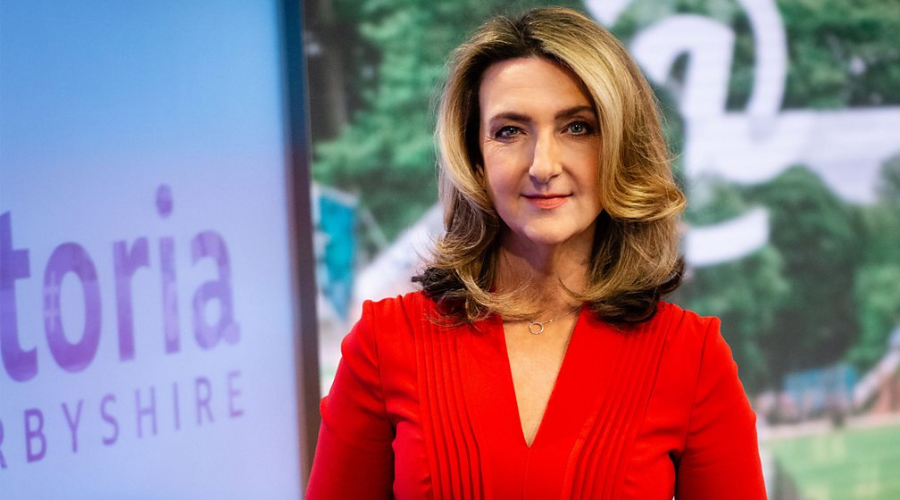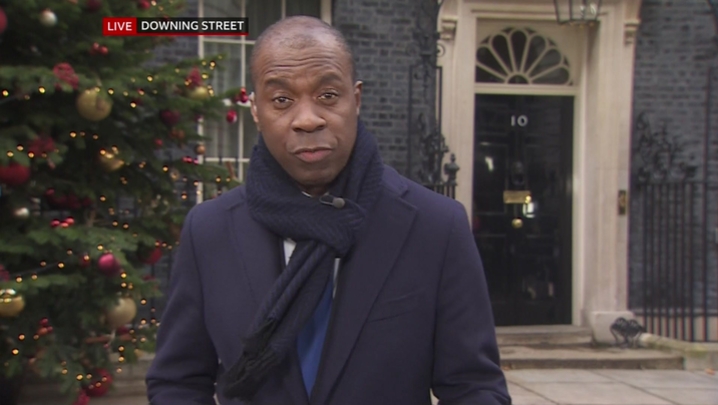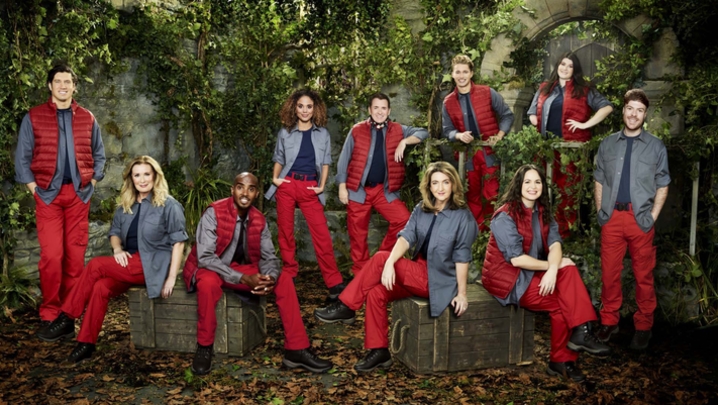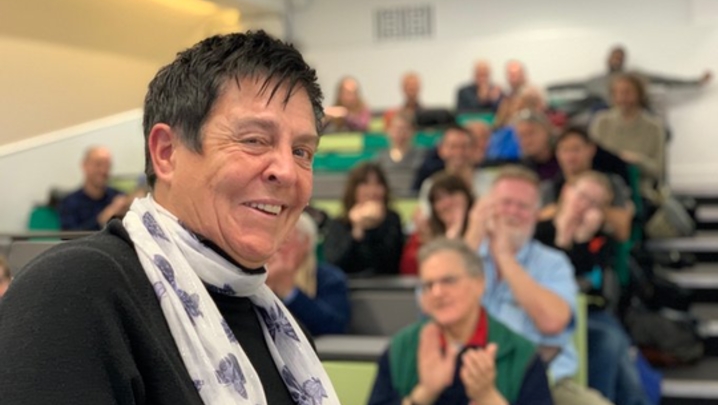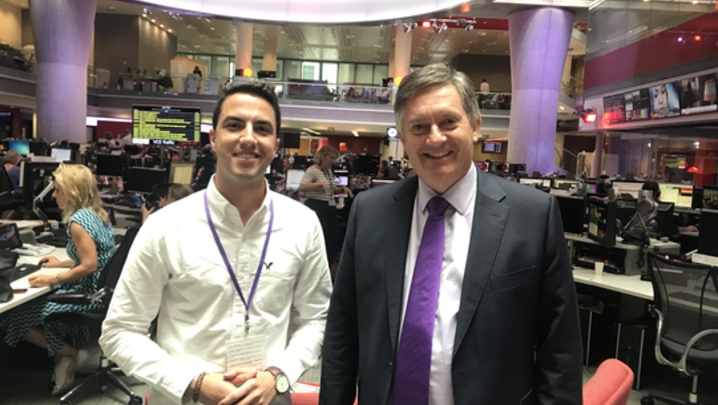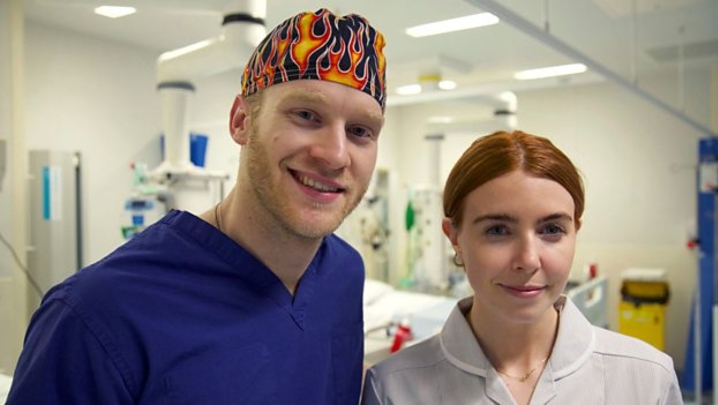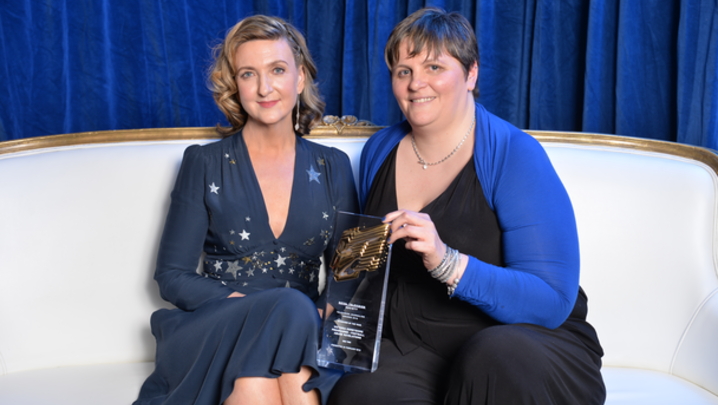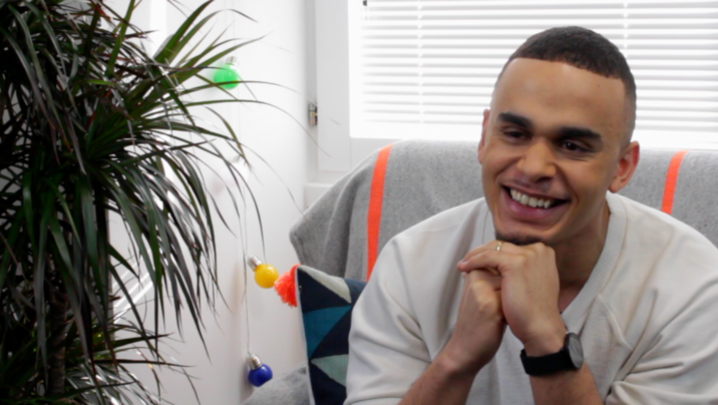Presenting BBC News from an empty broadcasting house and speaking to guests over Zoom, one of the things Victoria Derbyshire misses most is meeting them in the studio.
“For me, it’s a real issue,” she explains, “because I spend so much time with guests before I interview them making them feel comfortable, going through their story, just letting them know I’ll be there to look after them.”
Such compassion comes as no surprise from a broadcaster who has long used her platform to both sensitively question victims of injustice and forensically interrogate those responsible.
The axing of her eponymous current affairs show on BBC Two in January of 2020 was met with outrage and over 73,000 people signed a petition to reinstate the programme. When asked what she misses from the show, Derbyshire says, “our team and our laser-like focus on underserved audiences,” but it’s a focus that hasn’t faltered as she continues to work across the BBC News channels.
Derbyshire believes that engagement comes with representation. “You make a decision about what kind of guests you put on and what kind of stories you select,” she explains.
“If you reflect stories about their lives, then they see themselves on TV and they think ‘OK, this is for us actually.’”
The pandemic may have dominated the agenda and confined her to the newsroom for much of the past year, but among those Derbyshire says she has aimed to serve are “homeless people and people who find themselves turning to foodbanks for the first time. I’ve also tried to push the fact that people with disabilities are disproportionately affected by COVID.”
In May last year, Derbyshire took public service broadcasting a step further when reporting on the sharp rise in unemployment due to the pandemic.
A man called Paul Stewart phoned in and told Derbyshire that he had moved from London to Bradford to start a new job, but that when COVID hit the offer was withdrawn, leaving him jobless, homeless and sleeping in an underpass.
Looking directly into the camera, she made a call to arms: “I don’t know if our viewers can help, but I know they are a compassionate lot. I’ve learnt that over the last few years.”
“I was just so shocked for him and I didn’t want to just move on to the next story, I wanted to do something,” recalls Derbyshire, “and the audience got that and absolutely dug in and contributed. It was incredible.” Viewers raised enough money for Stewart to move back into the flat from which he had been evicted.
“I am a journalist - sorry this sounds stupid - but I am also a human being. So if someone’s going through a hard time it’s going to affect us,” she adds.
"Are you lonely?"
"Yeah, no-one's ever asked me that before... I am, very"@vicderbyshire has been to meet those sleeping rough in London's financial district
This is the story of Daisy and Jade.https://t.co/GB43uDMlUX pic.twitter.com/CHCsxRgllC
— Victoria Derbyshire (@VictoriaLIVE) February 27, 2020
With Escaping My Abuser, Derbyshire also gave voice to the women enduring domestic abuse in lockdown. Having grown up in an abusive household, she says her first thought when they announced the first lockdown was for those now trapped in one. It was a special circumstance that was not being discussed, so Derbyshire suggested to the editor of Panorama, Rachel Jupp, that they produce an episode on the issue.
“I think we definitively showed - for the first time - that in lockdown the abuse gets worse, and that it’s harder for people to leave,” she says. It was one of Panorama’s most watched programmes of 2020 with three million views.
Derbyshire also notes that when Boris Johnson listed the acceptable reasons for leaving your home during the last lockdown, one was if you were in an abusive relationship. “Now that was not in the forefront of any cabinet minister’s mind a year ago when they announced the first lockdown,” she says.
In November of 2020, Derbyshire appeared in ITV’s reality show I’m a Celebrity... Get Me Out of Here!, relocated from the Australian rainforest to Gwrych Castle in north Wales for its 20th edition.
Derbyshire says she took part for several reasons, but first and foremost, “it was an opportunity to have some fun!”
She explains, “I’m very much up for those once in a lifetime experiences, particularly having had cancer.”
The programme is also the only television her children watch. “Otherwise they’re on YouTube,” she says, “and they really, really wanted me to do it.”
There was the usual lack of food and comfort, and swapping the sweaty outback for a Welsh winter posed an extra challenge, but Derbyshire says she found none of them really hard. Apart from the bushtucker trials.
“You always think when you’re watching it ‘oh come off it, they’ll have a hot shower in a bit’ [but] no, there’s none of that.”
Although, she says, the positives far outweighed the negatives: “the camaraderie, the group of friends I’ve made, the laughs that we had!” And the show would also give rise to her newfound role as an agony aunt.
When she returned from camp, Derbyshire noticed that “loads of young women” had started following her on Instagram and sharing their appreciation for her joyfulness and openness about the breast cancer she beat via direct messages. Many soon began asking for advice, so she decided to answer.
Using the Instagram caption as an advice column, she now responds to any requests, often for help in dealing with anxieties and relationship troubles. “Some of the stories that come to me are heart-breaking and moving and some are uplifting. I just like the connection I’ve got with young women, so it just feels like a good thing to do,” she says, and the same goes for her broadcasting.
“I love that connection with the audience. I care about them, I genuinely care about them.”
Victoria Derbyshire was nominated for the RTS Network Presenter of the Year award at the RTS Television Journalism Awards 2021 alongside John King and Clive Myrie.

